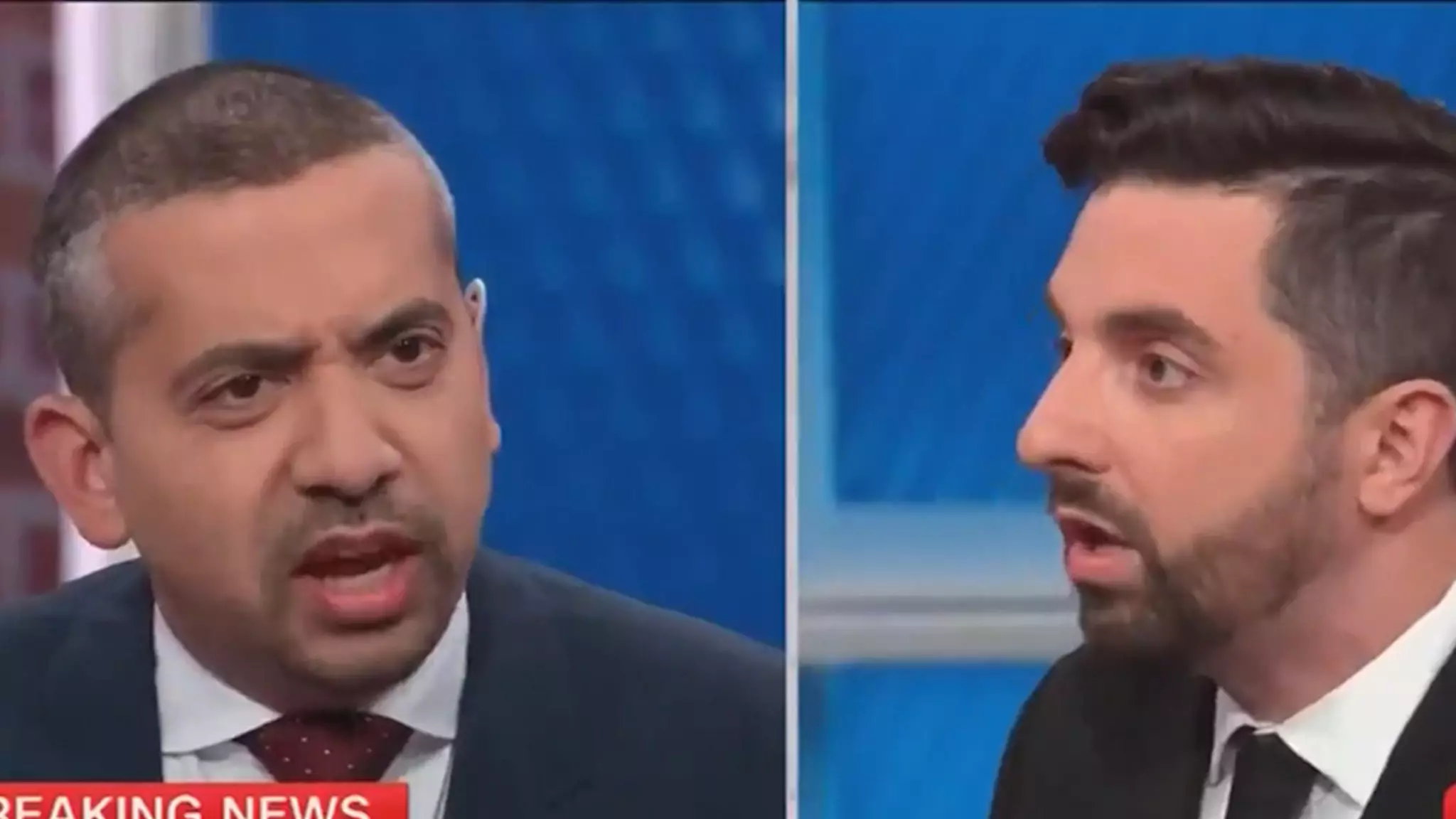The media landscape is often fraught with contentious dialogues, where statements can ignite significant backlash in an instant. The recent incident involving political commentator Ryan Girdusky serves as a notable example of this phenomenon. Following a heated discussion on CNN’s “NewsNight With Abby Phillip,” Girdusky faced severe repercussions for what he termed a “joke” – a comment that many interpreted as racially charged. This article delves into the implications of Girdusky’s remarks, the subsequent fallout, and the broader conversations about responsibility and accountability in media discourse.
The Triggering Controversy: Context Matters
During the debate, Girdusky made a remark that alluded to “beepers” in a context some audience members found inappropriate and distressing. The comment was linked to a historical event where pagers were used in targeted attacks involving Hezbollah operatives, and it insinuated a personal attack against fellow panelist Mehdi Hasan. When discussing a sensitive topic such as support for Palestinian rights within the context of political violence and terrorism, such remarks run the risk of trivializing genuine issues that affect countless lives. Particularly for a mainstream media platform like CNN, the need for sensitivity and decorum is paramount.
Girdusky’s defense, claiming his comment was merely a jest, reflects a common phenomenon in political commentary where individuals often dismiss criticisms by framing them as overly sensitive. This defense ignores the very real impact of language and rhetoric, especially in an environment ripe with historical animosities and ongoing conflicts. With Girdusky pushing back against those who criticize him, it raises the question: how responsible should media figures be for their rhetoric?
In light of Girdusky’s comment, CNN took a firm stance, underscoring its zero tolerance for bigotry and racist remarks. The network’s decision to ban Girdusky from future appearances illustrates a commitment to upholding ethical standards in journalism, particularly in an age where misinformation and inflammatory rhetoric often dominate public discourse. Abby Phillip, the show’s host, also publicly condemned Girdusky’s comments and issued an apology, reflecting the network’s effort to distance itself from the controversy.
By issuing a statement reaffirming their intolerance of harmful language, CNN is attempting to reclaim the narrative and demonstrate that such discourse will not be tolerated on their platform. This also speaks to the broader need for media organizations to establish boundaries regarding acceptable commentary – especially when dealing with sensitive political and social subjects.
Following the incident, responses ranged from outrage to a disconcerting indifference towards Girdusky’s remarks. Many, including members of the audience and fellow political commentators, expressed stern disapproval, arguing his comments perpetuated harmful stereotypes and violence. Conversely, Girdusky portrayed himself as a misunderstood figure who stood by his “offensive” statements, claiming ownership of his words.
This incident exemplifies a larger trend within political commentary, where provocateurs can often thrive on outrage and negativity, thereby driving traffic and attention to themselves at the expense of the dialogue’s integrity. As Girdusky himself has noted, in the climate of the contemporary media landscape, “no one will remember it in a moment,” suggesting a fatalistic acceptance of fleeting attention over substantial impact.
The eruption of Girdusky’s controversial remarks serves as a critical reminder of the need for responsible discourse in an increasingly polarized society. With the advent of social media and the 24-hour news cycle, sound bites can quickly spiral into full-blown controversies, often overshadowing meaningful discussions on pressing issues.
As viewers and commentators continue to navigate this tumultuous landscape, it’s essential to foster a culture of nuance, where dialogue thrives on respect and understanding rather than sensationalism. In doing so, not only can media platforms uphold their integrity, but they can also contribute to a more informed and inclusive public discourse—one where every voice is heard without resorting to derogatory tropes or inflammatory remarks. Ultimately, the responsibility lies not just with individual commentators but also with the media institutions that allow them a platform.

